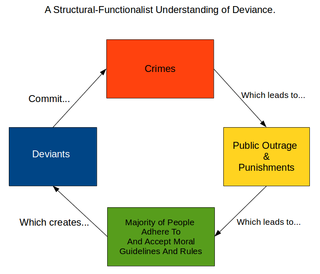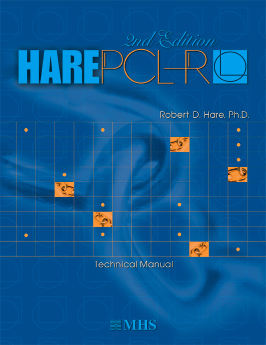Related Research Articles
A mental disorder, also referred to as a mental illness or psychiatric disorder, is a behavioral or mental pattern that causes significant distress or impairment of personal functioning. Such features may be persistent, relapsing and remitting, or occur as single episodes. Many disorders have been described, with signs and symptoms that vary widely between specific disorders. Such disorders may be diagnosed by a mental health professional, usually a clinical psychologist or psychiatrist.

Psychology is the scientific study of mind and behavior. Psychology includes the study of conscious and unconscious phenomena, including feelings and thoughts. It is an academic discipline of immense scope, crossing the boundaries between the natural and social sciences. Psychologists seek an understanding of the emergent properties of brains, linking the discipline to neuroscience. As social scientists, psychologists aim to understand the behavior of individuals and groups. Ψ (psi), the first letter of the Greek word psyche from which the term psychology is derived, is commonly associated with the science.
Paraphilia is the experience of intense sexual arousal to atypical objects, situations, fantasies, behaviors, or individuals. It has also been defined as sexual interest in anything other than a consenting human partner.

Social work is an academic discipline and practice-based profession concerned with meeting the basic needs of individuals, families, groups, communities, and society as a whole to enhance their individual and collective well-being. Social work practice draws from areas, such as psychology, sociology, health, political science, community development, law, and economics to engage with systems and policies, conduct assessments, develop interventions, and enhance social functioning and responsibility. The ultimate goal of social work is the improvement of people's lives and the achievement of social justice.
Conduct disorder (CD) is a mental disorder diagnosed in childhood or adolescence that presents itself through a repetitive and persistent pattern of behavior that includes theft, lies, physical violence that may lead to destruction, and reckless breaking of rules, in which the basic rights of others or major age-appropriate norms are violated. These behaviors are often referred to as "antisocial behaviors." It is often seen as the precursor to antisocial personality disorder, which by definition cannot be diagnosed until the individual is 18 years old. Conduct disorder may result from parental rejection and neglect and can be treated with family therapy, as well as behavioral modifications and pharmacotherapy. Conduct disorder is estimated to affect 51.1 million people globally as of 2013.
Frotteurism is a paraphilic interest in rubbing, usually one's pelvic area or erect penis, against a non-consenting person for sexual pleasure. It may involve touching any part of the body, including the genital area. A person who practices frotteuristic acts is known as a frotteur.

Forensic psychology is the development and application of scientific knowledge and methods to help answer legal questions arising in criminal, civil, contractual, or other judicial proceedings. Forensic psychology includes both research on various psychology-law topics, such as jury selection, reducing systemic racism in criminal law, and eyewitness testimony, as well as professional practice, such as evaluating individuals to determine competency to stand trial or assessing military veterans for service-connected disability compensation. The field traces its roots to contributions by Wilhem Wundt, Hugo Münsterberg, and Sigmund Freud among others. Contemporary definitions of forensic psychology recognize that several subfields of psychology apply "the scientific, technical, or specialized knowledge of psychology to the law." The American Psychological Association's Specialty Guidelines for Forensic Psychologists reference several psychology subdisciplines, such as social, clinical, experimental, counseling, and neuropsychology.

Clinical psychology is an integration of social science, theory, and clinical knowledge for the purpose of understanding, preventing, and relieving psychologically based distress or dysfunction and to promote subjective well-being and personal development. Central to its practice are psychological assessment, clinical formulation, and psychotherapy, although clinical psychologists also engage in research, teaching, consultation, forensic testimony, and program development and administration. In many countries, clinical psychology is a regulated mental health profession.
Involuntary treatment refers to medical treatment undertaken without the consent of the person being treated. Involuntary treatment is permitted by law in some countries when overseen by the judiciary through court orders; other countries defer directly to the medical opinions of doctors.
A mental health professional is a health care practitioner or social and human services provider who offers services for the purpose of improving an individual's mental health or to treat mental disorders. This broad category was developed as a name for community personnel who worked in the new community mental health agencies begun in the 1970s to assist individuals moving from state hospitals, to prevent admissions, and to provide support in homes, jobs, education, and community. These individuals were the forefront brigade to develop the community programs, which today may be referred to by names such as supported housing, psychiatric rehabilitation, supported or transitional employment, sheltered workshops, supported education, daily living skills, affirmative industries, dual diagnosis treatment, individual and family psychoeducation, adult day care, foster care, family services and mental health counseling.
Pedophilia is a psychiatric disorder in which an adult or older adolescent experiences a primary or exclusive sexual attraction to prepubescent children. Although girls typically begin the process of puberty at age 10 or 11, and boys at age 11 or 12, criteria for pedophilia extend the cut-off point for prepubescence to age 13. According to DSM-5-TR, a person must be at least 16 years old, and at least five years older than the prepubescent child, for the attraction to be diagnosed as pedophilic disorder.
Lyn Yvonne Abramson is a professor of psychology at the University of Wisconsin–Madison. She was born in Benson, Minnesota. She took her undergraduate degree at the University of Wisconsin–Madison in 1972 before attaining her Ph.D. in clinical psychology at University of Pennsylvania in 1978.
Psychopathy, sometimes considered synonymous with sociopathy, is characterized by persistent antisocial behavior, impaired empathy and remorse, and bold, disinhibited, and egotistical traits. Different conceptions of psychopathy have been used throughout history that are only partly overlapping and may sometimes be contradictory.

Forensic social work is the application of social work to questions and issues relating to law and legal systems. This specialty of the social work profession goes far beyond clinics and psychiatric hospitals for criminal defendants being evaluated and treated on issues of competency and responsibility. A broader definition includes social work practice which in any way is related to legal issues and litigation, both criminal and civil. Child custody issues, involving separation, divorce, neglect, termination of parental rights, the implications of child and spousal abuse, juvenile and adult justice services, corrections, and mandated treatment all fall under this definition. Forensic social worker may also be involved in policy or legislative development intended to improve social justice.

The Psychopathy Checklist or Hare Psychopathy Checklist-Revised, now the Psychopathy Checklist—revised (PCL-R), is a psychological assessment tool that is commonly used to assess the presence and extent of the personality trait psychopathy in individuals—most often those institutionalized in the criminal justice system—and to differentiate those high in this trait from those with antisocial personality disorder, a related diagnosable disorder. It is a 20-item inventory of perceived personality traits and recorded behaviors, intended to be completed on the basis of a semi-structured interview along with a review of "collateral information" such as official records.
Paul Stuart Appelbaum is an American psychiatrist and a leading expert on legal and ethical issues in medicine and psychiatry.
Psychiatry is the medical specialty devoted to the diagnosis, prevention, and treatment of mental disorders. These include various maladaptations related to mood, behaviour, cognition, and perceptions. See glossary of psychiatry.
Alan Edward Kazdin is Sterling Professor of Psychology and Child Psychiatry at Yale University. He is currently emeritus and was the director of the Yale Parenting Center and Child Conduct Clinic. Kazdin's research has focused primarily on the treatment of aggressive and antisocial behavior in children.
Gerald Paul Koocher is an American psychologist and past president of the American Psychological Association (APA). His interests include ethics, clinical child psychology and the study of scientific misconduct. He is Dean Emeritus Simmons University and also holds an academic appointment at Harvard Medical School. Koocher has over 300 publications including 16 books and has edited three scholarly journals including Ethics & Behavior which he founded. Koocher was implicated as an author of the so-called "torture memos" that allowed psychologists to participate in torture during interrogations in the Hoffman Report, an APA investigation into psychologists' involvement in interrogation at Guantanamo Bay, Cuba.
Toxic masculinity is a set of certain male behaviors associated with harm to society and men themselves. Traditional stereotypes of men as socially dominant, along with related traits such as misogyny and homophobia, can be considered "toxic" due in part to their promotion of violence, including sexual assault and domestic violence. The violent socialization of boys often normalizes violence, such as in the saying "boys will be boys" about bullying and aggression.
References
- 1 2 "Mental Health Law's "Leading Thinker"" (PDF). Virginia Journal. 1999.
- 1 2 University of Virginia Law School. "John T. Monahan".